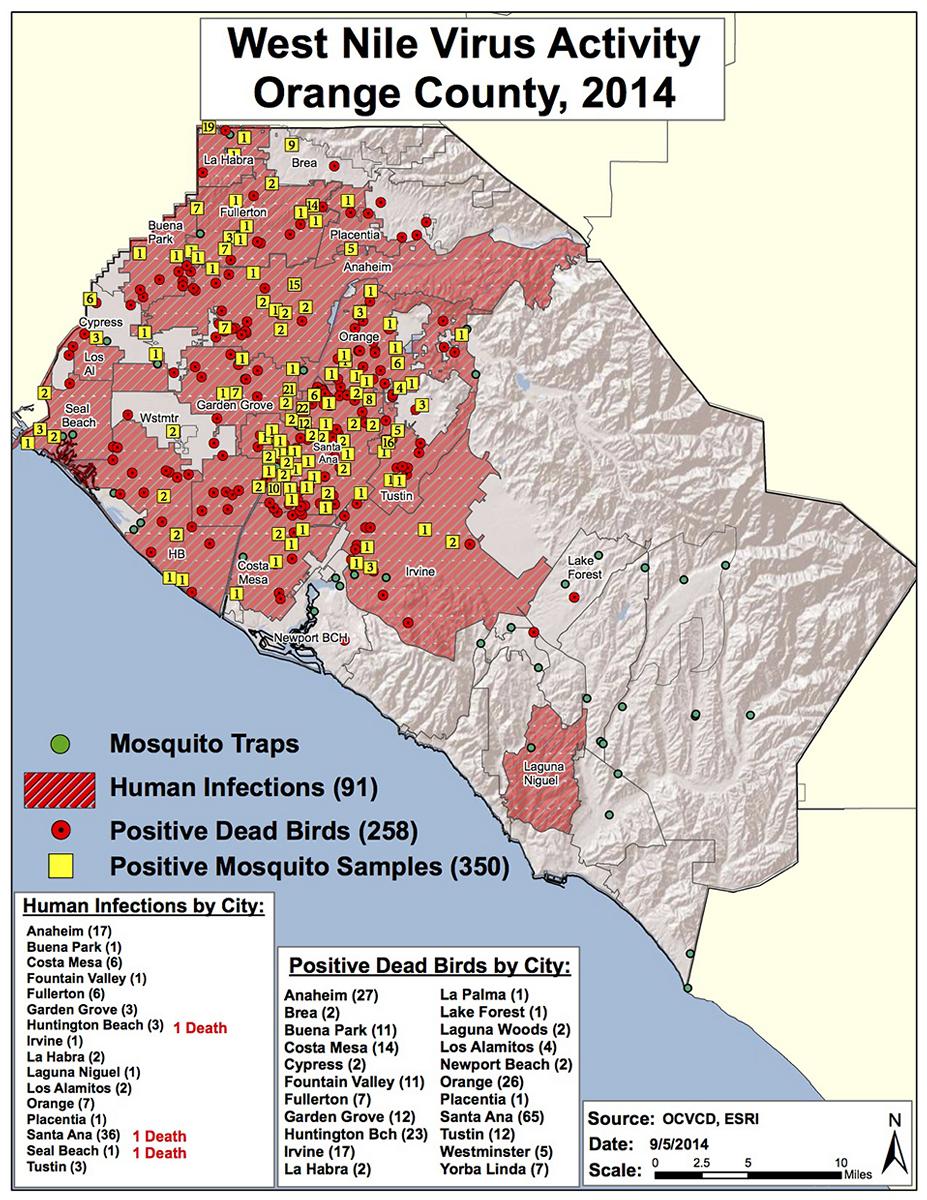
With the West Nile virus at an all time high in California’s mosquitoes, concern rises over risk. However, Biola students and the student health center do not view the virus as a threat.
There are 311 human cases of the virus in California, with 73 new cases as of September 16, according to the California West Nile Virus website. The drought caused the peak in the virus, said Jared Dever, director of communications at Orange County Vector Control. Though Los Angeles County experienced a significantly smaller issue with the virus than the previous year with 50 human cases, Orange County hit its peak of 116 cases.
Dever said the West Nile virus generally adheres to a cycle of low activity followed by a peak in activity every four years. This year’s peak falls out of line from its usual pattern.
“You have an oscillating, kind of cyclical nature of West Nile Virus. This 2014 epidemic doesn’t quite fit with the cycle that had been predicted for it to occur,” Dever said. “We’re basically two years early, unfortunately, due to a combination of circumstances, such as drought.”
BIOLA UNTHREATENED
While all of California experiences some cases of the virus, Orange County leads with the most human cases.
“This year, Orange County is the focal point for West Nile virus, unfortunately,” Dever said.
Nevertheless, the West Nile virus does not pose a threat to Biola students, said Kristin Phelps, director of health services at the student health center.
Phelps attributes this to the close ties facilities has with Los Angeles Vector Control, who sends out specialists to inspect the mosquitoes at the La Mirada creek. No mosquito activity has been found around Biola, Phelps said.
“Facilities has a very good relationship with vector control and they come out periodically and check the creek and different areas where mosquitoes have been,” Phelps said.
The West Nile virus has never been diagnosed at Biola, which may be in part to the fact that 80 percent of people who contract the virus do not show symptoms, Phelps said. In fact, most experience symptoms similar to a fever and then recover, said Phelps. Additionally, those most impacted by the virus are 50 years old and above, said Dever.
STUDENTS UNALARMED
Senior kinesiology major Chelsea Ades said she is not bothered by the rise in the West Nile virus.
“We don’t really have mosquitoes out here so I’m not really that concerned,” Ades said.
However, junior English major Ginny Schneider, who grew up in Orange County, resonates with the concern.
“I grew up in Orange County for a number of years and know there’s lots of creeks. So yeah, that is concerning. It is a highly populated area for people and for animals,” Schneider said.
While the West Nile virus does not currently threaten Los Angeles County, it is never off of Biola’s radar, said Phelps.
“The best thing students can do is personal protection measures — light colored, long sleeve shirts, long pants, that type of thing. If dead birds, dead squirrels are seen, that is to be reported because then they’ll come and test,” Phelps said.
Dever stressed that the virus is 100 percent preventable. Avoid overwatering plants and wear bug spray with DEET, Dever said.







